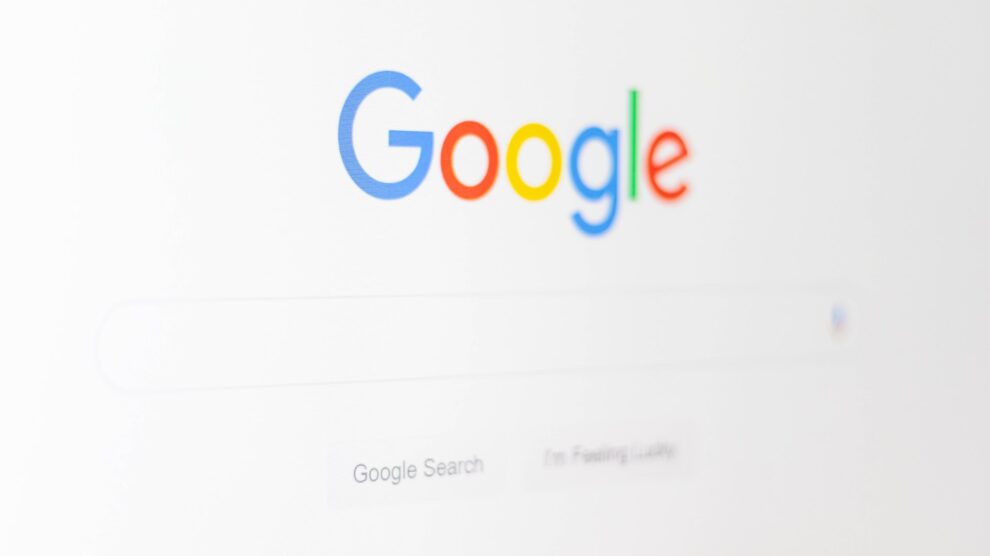Following previous scandals in 2020, Google has unveiled plans to build a privacy-focused browser that is both non-invasive of user history and supportive to the work of advertisers and publishers.
In particular, Google has recently announced that third-party cookies are to be removed in Chrome in order to improve users’ web browsing protection. Unlike Safari and Firefox, which have been blocking cookies for a long time, Google is launching a new series of technological solutions to replace the inconvenient cookie monitoring scheme.
Google assures consumers, advertisers, and policymakers that the new privacy-focused web will continue to meet their needs. As a result, a cookie-free web will create not only greater privacy but also transparency, choice, and control of how web data is used.
What are Cookies?
There are two types of web cookies; technically, there is no real difference between the two, as they both contain the same pieces of information that monitors users web behaviour and builds a unique user profile about them. But in application, first-party and third-party cookies are created and used by websites differently.
First-party cookies are created by the host domain a user is directly visiting. First-party cookies might help users stay logged into their accounts, set language preferences and perform other convenient functions which contribute to a better user experience.
On the other hand, third-party cookies – also known as tracking cookies or trackers – are created by external domains and build user profiles across every site they visit, mainly without the user knowing. Third-party cookies allow websites and marketers to target users for highly-specific advertisements and retargeting purposes.
What is the Problem with Cookies?
Cookies can be used safely and ethically as collecting customer behaviour online can be a beneficial marketing technique that can deliver value to consumers, which then benefits the seller who gains a customer and the digital marketer who successfully increases a campaigns ROI.
However, it is becoming more common that this data is misused, mainly as it is obtained without the consumer’s permission. So overall, while cookies provide positives – the negative outweigh the benefits for users.
While other web browsers have adapted to recent user and legislative requests for privacy, by completely banning third-party cookies, Google recognises this is not a long-term solution. Obliterating cookies harms websites and digital marketers that rely on remarketing advertisements for revenue, and it promotes ambiguous monitoring methods like fingerprinting, which compromises user privacy and security.
Device Fingerprinting is an intrusive practice that captures small characteristics of user behaviour to create a personalised user profile, comparable to how cookies work to identify the type of person on a site.
But Fingerprinting works around ad blockers and users who clear their cookies. Instead, this profile is created without using cookies, but uses browser settings set by a user, including IP address, browser extensions, fonts and plugins.
Fingerprinting, unlike cookies, is more difficult to detect, and user profiles are difficult to erase. The industry has expressed fears that continuing with cookies could result in even more intrusive practices making the web safe for no one! So, it’s essential to fix the problem before it gets worse.
How Will Google Replace Cookies?
Instead of following Safari and Firefox altogether banning cookies, Google has figured out a way to show users relevant ads without monitoring their personal data.
The “Privacy Sandbox” –made up of five Application Programming Interfaces (APIs) – is Google’s newest collection of secure technology. The Privacy Sandbox will group users with shared preferences together by using browser-based machine learning and other non-invasive techniques. Allowing advertisers to target a specific audience group based on their tastes and demographics without using individual data.
In particular, Google has provided testing results and details for one of the APIs, dubbed “FLoC” or “Federated Learning of Cohorts”. FLoC will be available as a live plugin in the Chrome browser by the end of the year.
FLoC’s primary goal is to encourage interest-based advertising rather than individual advertising. Overall stopping individual users from being tracked and implementing anti-fingerprinting measures which avoids misleading and invasive practices.
For better understanding, let’s look at an example; currently, if a user searches for ‘pink bags’, the user would afterwards see specific ads for pink bags across the internet.
But, under the Privacy Sandbox, Chrome will include ‘pink bags’ as one of the user’s interests and categorises them as a part of a FloC group interested in pink bags. Advertisers can then bid for targeted marketing to show that “cohort” of FloC users ads relating to their interest in ‘pink bags’. Therefore the advertising is targeting a group of people and not just one individual.
Google is hoping the Privacy Sandbox will allow existing sites that incorporate cookie infrastructures to continue collecting data that is useful for advertisers, but now avoid using unethical, invasive and annoying tracking devices on individuals.
Google states digital advertisers no longer need to rely on user tracking to achieve successful results, “People shouldn’t have to accept being tracked across the web in order to get the benefits of relevant advertising. And advertisers don’t need to track individual consumers across the web to get the performance benefits of digital advertising.”
As a result, the Privacy Sandbox is non-intrusive to consumer privacy while still supporting a safe, ad-supported web. Over the next two years, Google plans to apply the Privacy Sandbox with out-of-the-box strategies to their current web technologies.
What Removing Cookies on Google Will Mean for Your Small Businesses
It’s no secret that Chrome has a strong web footprint, with a 69% market share on desktop and a 40% market share on smartphones. Dramatic changes to Chrome will cause a significant shakeup to all facets of the digital advertising industry.
The positive news is, despite trials beginning before the end of the year, Google estimates the scheme will take at least two years to execute. As a result, business owners have plenty of time to plan for significant advertising shifts. Google has stated they are open to partnering with marketers to ensure all industry players will profit from the new systems.
First-party cookies – those produced by host websites – will continue to work. That’s fantastic news because it ensures businesses can keep leveraging valuable user details and observations gleaned from tracking visitors’ on-site.
Currently, third-party cookies are critical for advertisers to get in contact with the right type of customer. The removal of third-party tracking and data use means ad retargeting will be completely disrupted because retargeting relies on third-party cookies following users from site to site. But as an Award-Winning Digital Marketing Agency, we are prepared with supplementary avenues to ensure successful targeted advertising.
In addition to using FloC’s new interest-based advertising, we plan to develop closer partnerships with publishers and use first-party tracking to target specific audiences for client advertisements and to implement rewarding remarketing campaigns.
Many experts believe a future landscape without third-party cookies will result in better advertising transparency, better privacy control for consumers, higher ROIs and more significant attribution for the digital marketing industry.
In fact, Google’s testing teams have claimed the new FLoC mechanism has a potential 95% increase in conversions per dollar, when compared to cookies’ ability to reach in-market and affinity audience types.
Every business owner must make sure they are informed about the possible shakeups in digital advertising. Particularly with alterations to multifaceted systems alike third-party cookies – where everyday business owners are unlikely to understand their complex mechanisms – because the entire digital marketing landscape can change overnight.
Thankfully, you can rely on prepared Ad Agencies, who can efficiently switch up digital marketing models and find new ways to make advertising campaigns profitable. So, your business not only survives in new landscapes, but thrives.





